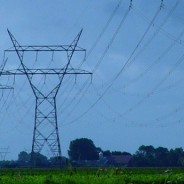Regulatory Capture in the Utility Space?

I really did not want to be writing about this. However, since I have found this article not in my own backyard, I can assume this could be a universal issue. Therefore, it becomes an important issue that the public should understand. The article here describes a deferral strategy employed by BC Hydro [update 9/19/12 oops looks like they got rid of the story – found another link for you]. Unfortunately, this deferral strategy is not uncommon. In my own backyard, with my own previous company; they have employed that strategy.
In essence the reason to employ the strategy is twofold. Deferring cost allows the commission, who are typically politically appointed, to appease their constituents, by not allowing significant price increases on their watch. The utility enjoys it as the commission allows a return (8+%) on the deferral much like a credit card. In a business sense, it is not wrong, but perhaps without full disclosure and explanation to the public; it could be perceived as wrong.
Clearly the commission is being self-serving by deferring cost. The rationale could be to smooth out prices. Howeve, if smooth pricing was so important; how about allowing the utility to hedge prices. This is the case of wanting to have your cake and eat it to. In many cases, one can see hedging could lead to increase cost to the ratepayer, but with a smoother price. The irony is many of the initiatives for smart grid are to enable the consumer to get better price discovery. Deferring a real cost to the consumer certainly is not offering price discovery.
For the utility, it really becomes a no brainer for them. However, if they sat back and actually thought it through; in the long run it may come back to haunt them. Deferring cost could potentially leave not much room for actual projects. In addition, deferral creates false signals in the market places. Many economists have espoused, “The cure to high prices is high prices”.
The utility has their work cut out for them when they actually have to recover the deferral. The most obvious concern when recovering the deferral is those who consume may not be the ones that will actually pay. The recovery mechanism cannot directly bill back to those that consumed; given many can move. Even tracking consumption by class is very tricky. Typically this enables the commission and the utility to once again “game” the system to their liking – whether it is to subsidize industrials at the expense of the consumer or vice versa. Typically it will be the industrials over the consumers; since the political strength and advocacy groups from the industrial class overwhelm the consumer and commercial class.
On a positive note, rates rising will allow innovative players in the space of energy efficiency, and new business models to focus on monetizing energy use to successfully come to fruition. At All Energy Consulting we are committed to making a better tomorrow. One of our key areas of focus is the transformation of the business model for property owners and developers.
We positively and evocatively challenge the current thinking involving any aspect of energy use. We look for projects that offer meaningful, transformative, with impactful outcome to the marketplace or society.
Independent analysis and opinions without a bias is what we offer to our clients. Please consider and contact All Energy Consulting for all your consulting needs.
Your Energy Consultant,

